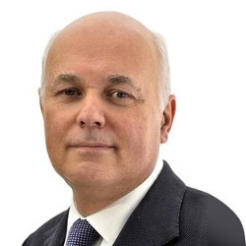Social investment will be “at the heart of the next government vision for social change”, Iain Duncan Smith, the Work and Pensions Secretary, wrote yesterday.
In an article in The Telegraph following the launch of seven new social impact bonds, Duncan Smith said social investment is the idea which can make “the single most significant difference” in the funding of social services, because it could attract “wealth creators with the rigour, discipline and innovation of the private sector” to help improve the UK social sector.
He said social investment would “bring the City to the inner city” and promised the government would capitalise on the “first trillion” of potential global investment money identified by the Social Impact Investment Taskforce, launched in 2013 by the G8 while it was under the UK’s presidency.
He said that of all social investment tools the social impact bond was “the most effective device to ensure capital supports delivery” because it ensured the government only paid for success.
“This ensures that governments no longer throw money at a social problem and hope for the best, but instead only commission programmes with known positive outcomes and then only pay for what works,” he said.
“Whilst ensuring government money isn’t wasted it also introduces a discipline in the way the programme is run. Too often in the past such discipline was missing.
“The evidence is very positive. The Peterborough prison bond reduced offending by 8.4 per cent for the first thousand short sentence prisoners that went through it. DWP’s Innovation Fund has generated 16,000 positive educational outcomes for young people. The rough sleeping bond in London has reduced rough sleeping by 30 per cent.
“With the UK social investment market estimated to grow to £1billion by next year, the potential for this nascent market is huge.”









